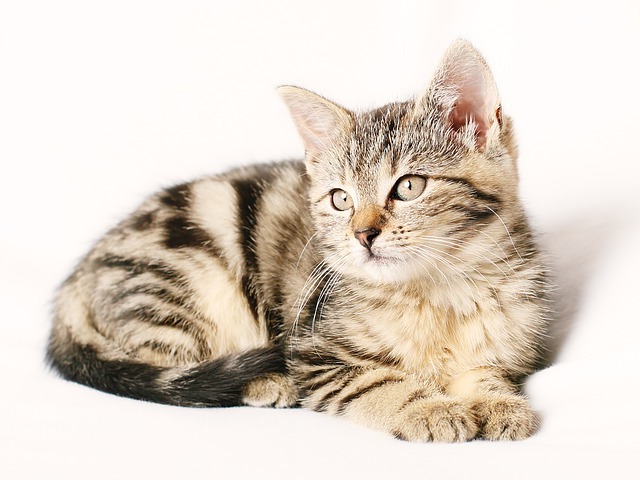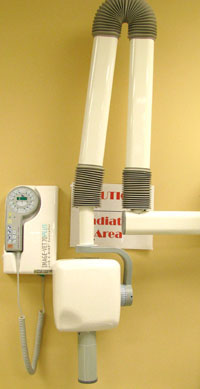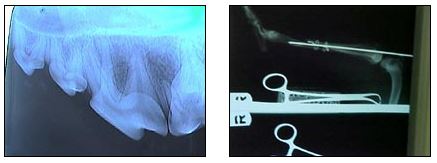Our Veterinary Services
VACCINES AND PREVENTIVE MEDICINE:
We provide both core and optional vaccines for dogs and cats. The American Animal Hospital Association (AAHA) recommends that all dogs receive canine distemper, hepatitis, parvovirus, parainfluenza, and rabies vaccinations. Core vaccines for cats include feline distemper, feline calicivirus, feline herpes, and rabies. Puppies and kittens should receive their first set of vaccines by eight weeks of age. We also offer Bordetella, leptospirosis, chlamydia, feline leukemia, and giardia.
We recommend annual wellness exams for adult dogs and cats between one and seven years old. Puppies, kittens, and senior pets should have more frequent examinations. At each check-up, we record your pet's weight and temperature, ask about eating habits and exercise, and discuss parasite control. Our veterinarians also check for specific health issues, such as diabetes and signs of cancer. You also have the chance to get help with any behavioral concerns.
INTERNAL MEDICINE:

This veterinary specialty deals with the prevention, diagnosis, and treatment of diseases that originate in specific body systems. These include the endocrine, gastrointestinal, immune, lymphatic, renal, respiratory, and urogenital systems.
Radiology:
Our internal medicine and radiology units work closely together to arrive at the correct diagnosis for your pet's health condition. After interpreting the results of a diagnostic image, our radiologists prepare a report for your pet's veterinarian who will then decide on a course of treatment.
SENIOR WELLNESS
Enjoying the Golden Years; Important tips for your older pet.
If you haven’t already, soon you may begin to notice the telltale signs that your pet is entering the "senior" years. Maybe your dog takes longer to fetch a favorite ball. Maybe your cat stops greeting you at the door or takes longer to get there. Maybe your dog is forgetting housetraining. Perhaps you’re noticing that your dog is gaining weight, has poor skin and coat condition or is sleeping more than usual. Your special, old cat may be losing weight or drinking excess water. While these things may seem like normal "old age" to you, the fact is many of these signs may indicate that your senior pet has a medical problem that needs attention. In the past, we often accepted a declining quality of life for our aging pets as a fact of life beyond our control. Thanks to advances in disease detection and treatment, that is no longer necessary!
With appropriate veterinary care and nutrition, your pet’s senior years can be healthy and happy. You are the key to making this happen. You know your pet better than anyone so it’s up to you to report any changes to your veterinarian. Physical exams and diagnostic testing are very important as your pet ages. Remember: your dog ages 5 to 7 years for every one of yours. This suggests that health problems in your pet can progress 5 to 7 times faster. More frequent checkups are therefore necessary.
While some signs of aging, such as a graying muzzle and slowed activity are easy to identify, others are subtle. Most age-related changes in how your pet looks, acts and feels tend to be gradual. Therefore it takes a watchful eye to recognize what may be early signs of disease or health problems. Following is a list of the most common changes associated with age-related diseases and compromising medical conditions. If you note any of these changes in your pet, please let your veterinarian know.
- Weight gain (or loss)
- Changes in appearance (skin and haircoat or muscle tone)
- Changes in eating or drinking habits
- Increased urination
- Increased thirst
- Loss of housetraining
- Limping, stiffness and arthritis
- Coughing or difficulty breathing
- Exercise intolerance
- Vision and hearing loss
- Bad breath (dental disease)
- Nonresolving diarrhea or vomiting
- Less interaction with family
- Disorientation/confusion (getting lost in the house or yard)
- Less responsive to verbal cues or name
- Seizures
- Significant decrease in appetite
Now is also a good time to reassess your pet’s diet. Proper nutrition is an extremely important factor in your senior pet’s health. Dietary needs mirror the changes occurring in the body, metabolism slows and fewer calories are required. Just as we need to alter our diet as we grow older, aging pets should avoid excess weight gain. A properly formulated diet combined with moderate exercise program is powerful preventative medicine for senior pets. The Alexandria Veterinary Clinic PetCare Center is dedicated to caring for your special older pet. The latest technology such as Laser Surgery, X-rays, Blood Chemistry, Urinalysis, Med-RX Imaging System, Nutrition Counseling, Arthritis Management and Dentistry are all techniques used to help our aging pets. Enjoy your pet’s "golden years".
SURGERY:
Some of the most common surgeries we perform include tooth extraction, removal of skin masses, bladder stones, and surgery for various types of cancer. Regardless of the type of surgery your pet needs, his or her veterinarian will let you know exactly what you can expect. This includes the surgical procedure itself as well as the recovery at home.
SPAY AND NEUTERS:
Spaying your female pet and neutering your male pet helps to control pet overpopulation. Unfortunately, millions of pets are euthanized every year because there are not enough homes for all of them. Additional benefits of sterilization include a longer lifespan, reduced risk of mammary gland and testicular cancer, no heat cycles or roaming behavior, and less aggressive behavior by both males and females.
In House Lab
It can be very difficult to reach a medical diagnosis from clinical (outward) signs only. A diagnosis should come from a combination of a detailed medical history, careful physical examination and diagnostic tests.
We have strived over the years to develop a state of the art in-house lab. Having the ability to get same day results is very important for critical cases and for pre-surgical screening. For most tests we can take a sample and within a few hours have results and a treatment plan underway.
For surgery cases the patient is dropped off in the morning, a blood sample is taken, tests are run and if the test results are within normal ranges, surgery can be started.
We have an Automated Hematology system, and a Chemistry & Electrolyte analyzer. We will continue to use commercial labs for some of our testing, but feel that our in-house lab helps us make a more timely diagnosis so we can provide faster treatment to the patient.
Please feel free to contact us if you have any specific questions.
Radiology
 As a pet owner, you know it is important to recognize when your pet is not well. Your companion pet can not exactly tell you when it hurts, where it hurts or why it hurts. When you bring you companion pet to the veterinarian you rely on them to come up with the answers to certain signs and symptoms you’ve noticed. Because of the lack in communication within the patient-doctor relationship, we rely heavily on technology. Here at the Alexandria Veterinary Clinic Pet Care Center our goal is to have the latest and most up to date technology. One of the technologies we use most often for diagnostics is a radiographic image. A radiographic image is a precise interpretation of density patterns. Radiographs are useful for diagnostics and allow us to look at hip dysplasia, heart disease, fractures, arthritis, bladder stones and many other conditions. The Alexandria Veterinary Clinic PetCare Center has committed itself to high quality radiology equipment with an Innovet X-Ray machine.
As a pet owner, you know it is important to recognize when your pet is not well. Your companion pet can not exactly tell you when it hurts, where it hurts or why it hurts. When you bring you companion pet to the veterinarian you rely on them to come up with the answers to certain signs and symptoms you’ve noticed. Because of the lack in communication within the patient-doctor relationship, we rely heavily on technology. Here at the Alexandria Veterinary Clinic Pet Care Center our goal is to have the latest and most up to date technology. One of the technologies we use most often for diagnostics is a radiographic image. A radiographic image is a precise interpretation of density patterns. Radiographs are useful for diagnostics and allow us to look at hip dysplasia, heart disease, fractures, arthritis, bladder stones and many other conditions. The Alexandria Veterinary Clinic PetCare Center has committed itself to high quality radiology equipment with an Innovet X-Ray machine.
One of the newest pieces of equipment we’ve purchased is one that we truly believe will improve the quality of life in many dogs and cats. This is the ImageVet 70 plus Dental X-Ray machine. Just like human dentistry, veterinary dentistry is equally important. Dental x-rays are used to study and document the progress in therapeutic treatments of all stages of periodontal disease and oral diseases. These radiographic images can also determine the extent of periodontal disease.
Radiographic images serve many important purposes and become a very important diagnostic tool.
Laser Surgery
The Alexandria Veterinary Clinic PetCare Center is proud and excited to be one of the first veterinary clinics in Minnesota to provide Laser Surgery. This incredible surgical tool is revolutionizing the way surgery is performed on our companion animals. Laser technology reduces the trauma to your pet, improves recovery, and often shortens hospital stays.
A laser is a device that generates an intense beam of light at a specific wavelength. The way a particular laser works is determined by the specific wavelength of light that is produces. For example, the most commonly used surgical laser is the carbon dioxide laser. This laser produces an invisible beam of light that vaporizes the water normally found in the skin and other soft tissue. The laser can be precisely controlled allowing only a thin layer of tissue to be removed, leaving the surrounding area unaffected. There are several advantages to carbon dioxide laser surgery:
1. Pain Reduction
The Laser seals nerve endings as it "cuts." This results in decreased pain for our special friends.
2. Swelling Reduction
Laser energy does not crush, tear or bruise tissue because the only thing that touches your pet is an invisible beam of light.
3. Control of Infection
The laser beam operates at a temperature of over 2000 degrees Fahrenheit. Essentially bacteria are vaporized by contact with the laser beam. This makes it highly effective at killing bacteria that have potential to cause an infection. This is particularly important in areas where it is difficult to prevent bacteria from contaminating the surgical site.
4. Precision
The laser can remove unhealthy tissue while minimizing adverse affects to healthy surrounding tissue.
5. Less Bleeding
The laser seals small blood vessels during surgery, which allows your doctor to perform surgeries with extraordinary precision. This also speeds some procedures reducing the amount of anesthesia required.A laser is ideal for a wide variety of surgical procedures for dogs, cats, horses and exotics. Laser surgery can correct many common conditions such as cysts, tumors, warts, and special procedures around the eyes, ears and mouth. Specialized internal procedures are also possible with a laser.
6. Recovery Time is Reduced
Less swelling, bleeding and post-operative discomfort results in a shorter recovery period for your pet.
Call Alexandria Veterinary Clinic PetCare Center at 320-762-8112 or 800-642-6263
